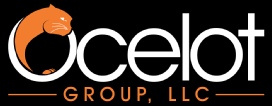
Our Constant Efforts Land Others Trust


Defined Benefit Plans
Commonly, it may calculate a benefit through a plan formula that considers such factors as salary and service — for example, 1 percent of average salary for the last 5 years of employment for every year of service with an employer. The benefits in most traditional defined benefit plans are protected, within certain limitations, by federal insurance provided through the Pension Benefit Guaranty Corporation (PBGC).
401(k) Plans
A defined contribution plan where employees can elect to defer receiving a portion of their salary which is instead contributed on their behalf, before taxes, to the 401(k) plan. As employer you may match these contributions. There are special rules governing the operation of a 401(k) plan and you must advise employees of any limits that may apply. Employees who participate in 401(k) plans assume responsibility for their retirement income by contributing part of their salary and, commonly, by directing their own investments.
Cash Balance Plans
A defined benefit plan that defines the benefit in terms that are more characteristic
of a defined contribution plan. In other words, a cash balance plan defines the promised
benefit in terms of a stated account balance. In a typical cash balance plan, a participant's
account is credited each year with a "pay credit" (such as 5 percent of compensation
from his or her employer) and an "interest credit" (either a fixed rate or a variable
rate that is linked to an index such as the one-
Employee Stock Ownership Plans (ESOP)
A form of defined contribution plan in which the investments are primarily in employer stock.


Alternatively, if you have an established plan in place we can help you ensure the plan is still meeting the stated goals and objectives. Also, we can help you improve the current plan.
Contact us for a plan review.
ERISA 408(b)(2) Plan Sponsor Fee Disclosure
Regulation
As you are likely aware, new regulations on fee disclosure in the retirement plan industry take effect this year (2012). ERISA 408(b)(2) plan sponsor disclosure requirements and the 404(a) participant disclosure requirements will have significant impact on fiduciaries of qualified retirement plans.
The Department of Labor regulatory deadlines for disclosing fees to your plan
participants and their beneficiaries is as follows:
Initial and Annual Notice:
The effective date for calendar year plans is now no later than May 31, 2012
Quarterly Notice:
The effective date for calendar year plans is on or before August 14, 2012*.
Since deadlines are fast approaching, we welcome the opportunity to help educate and assist you to:
• Establish and maintain procedures to evaluate service agreements with your plan
service providers
• Understand and meet your fiduciary responsibilities with regard to fee disclosure
• Understand what steps to take to satisfy your 404(a) disclosure obligations to
your employees
• Develop a communication plan for your employees
• To field questions and concerns from employees.
Contact us for a consultative appointment to discuss your plan and what you need to do to comply.
Money Purchase Pension Plans
A plan that requires fixed annual contributions from the employer to the employee's individual account. Because a money purchase pension plan requires these regular contributions, the plan is subject to certain funding and other rules.

Simplified Employee Pension Plan (SEP)
A (SEP) is a relatively uncomplicated retirement savings vehicles. A SEP allows employees
to make contributions on a tax-
Profit Sharing Plan or Stock Bonus Plan
A defined contribution plan under which the plan may provide, or the employer may determine, annually, how much will be contributed to the plan (out of profits or otherwise). The plan contains a formula for allocating to each participant a portion of each annual contribution. A profit sharing plan or stock bonus plan include a 401(k) plan.